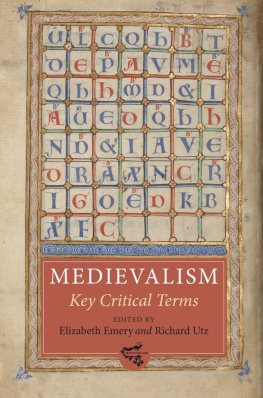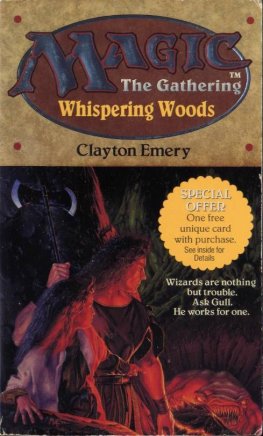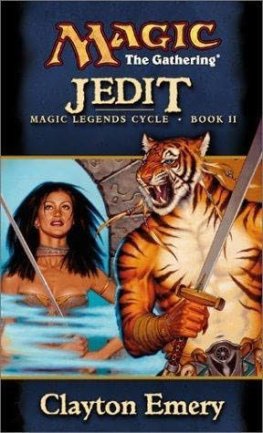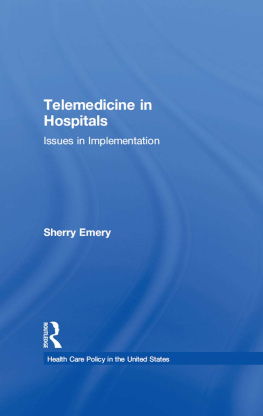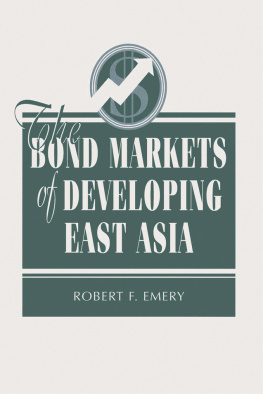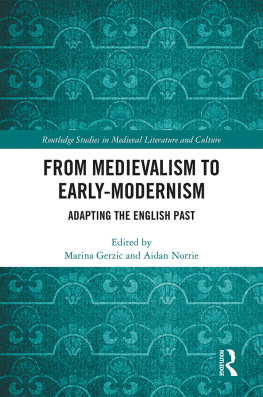Volume V
Medievalism
Key Critical Terms
The discipline of medievalism has produced a great deal of scholarship acknowledging the makers of the Middle Ages: those who re-discovered the period from 500 to 1500 by engaging with its cultural works, seeking inspiration from them, or fantasizing about them. Yet such approaches - organized by time period, geography, or theme - often lack an overarching critical framework. This volume aims to provide such a framework, by calling into question problematic yet commonly accepted vocabulary used in Medievalism Studies; within, leading international scholars in the field define and exemplify essential terms used when speaking of the reception of medieval culture in postmedieval times, in a lively and accessible style.
ISSN 20438230
Series Editors
Karl Fugelso
Chris Jones
Medievalism aims to provide a forum for monographs and collections devoted to the burgeoning and highly dynamic multi-disciplinary field of medievalism studies: that is, work investigating the influence and appearance of the medieval in the society and culture of later ages. Titles within the series will investigate the post-medieval construction and manifestations of the Middle Ages attitudes towards, and uses and meanings of, the medieval in all fields of culture, from politics and international relations, literature, history, architecture, and ceremonial ritual to film and the visual arts. It welcomes a wide range of topics, from historiographical subjects to revivalism, with the emphasis always firmly on what the idea of the medieval has variously meant and continues to mean; it is founded on the belief that scholars interested in the Middle Ages can and should communicate their research both beyond and within the academic community of medievalists, and on the continuing relevance and presence of the medieval in the contemporary world.
New proposals are welcomed. They may be sent directly to the editors or the publishers at the addresses given below.
Previous volumes in this series are printed at the back of this book
Contributors
Nadia Altschul, Johns Hopkins University
Martin Arnold, University of Hull
Kathleen Biddick, Temple University
William C. Calin, University of Florida
Martha Carlin, University of WisconsinMilwaukee
Pam Clements, Siena College
Michael A. Cramer, City College of New York
Louise DArcens, University of Wollongong
Elizabeth Emery, Montclair State University
Elizabeth Fay, University of Massachusetts Boston
Vincent Ferr, Universit Paris Est Crteil (UPEC)
Matthew Fisher, University of California, Los Angeles
Karl Fugelso, Towson University
Jonathan Hsy, George Washington University
Amy S. Kaufman, Middle Tennessee State University
Nadia Margolis, Mount Holyoke College
David Matthews, University of Manchester
Lauryn S. Mayer, Washington and Jefferson College
Brent Moberly, Indiana University
Kevin Moberly, Old Dominion University
Gwendolyn Morgan, Montana State University
Laura Morowitz, Wagner College
Kevin Murphy, Vanderbilt University
Nils Holger Petersen, University of Copenhagen
Lisa Reilly, University of Virginia
E. L. Risden, St. Norbert College
Carol L. Robinson, Kent State UniversityTrumbull
Juanita Feros Ruys, University of Sydney
Tom Shippey, St. Louis University
Clare A. Simmons, The Ohio State University
Zrinka Stahuljak, University of California, Los Angeles
M. J. Toswell, University of Western Ontario
Richard Utz, Georgia Tech
Angela Weisl, Seton Hall University
Making Medievalism: A Critical Overview
Elizabeth Emery and Richard Utz
T HE FIELD OF medievalism studies owes a tremendous debt to Leslie J. Workman and Kathleen Verduin. They worked indefatigably throughout the 1980s and 1990s to foster critical academic interest in medievalism, previously understood rather vaguely as a term describing a largely amateur nineteenth-century interest in what had since become the venerable twentieth-century discipline of medieval studies. By 1979, Workman had published the first issue of Studies in Medievalism , the journal which would develop into a widely recognized peer-reviewed publication through an ongoing association with Boydell & Brewer. In 1981, he began collaborating with his wife, Kathleen Verduin, a professor of American Literature at Hope College in Michigan. By 1986, they had begun a conference series, now known as the International Conference on Medievalism, and a proceedings series, The Years Work in Medievalism . Together, they created a nexus of medievalism studies in the English-speaking academy.
We begin this introduction to Medievalism: Key Critical Terms with a tribute to Leslie Workman and Kathleen Verduins achievements because the struggles they faced in bringing academic recognition to medievalism studies tensions among professionals and amateurs, Western Europeans and Others; debates about pastism and presentism, memory and subjectivity; deconstructions of the concepts of authenticity, authority, and the academic disciplines and institutions reliant on them reflect the development of the field as a whole. The idea of a dictionary or encyclopedia of critical terms in medievalism is also Leslie Workmans: a project left unfulfilled at the time of his death (2001). While the present volume does not seek to emulate the exhaustivity of such an encyclopedia, it does owe its existence to Workmans wish to engage with the contested terms used when speaking of medievalism. This introductory essay will provide a brief definition of medievalism, as well as an overview of the development of medievalism studies, now so well recognized that it warrants a book like this one.





